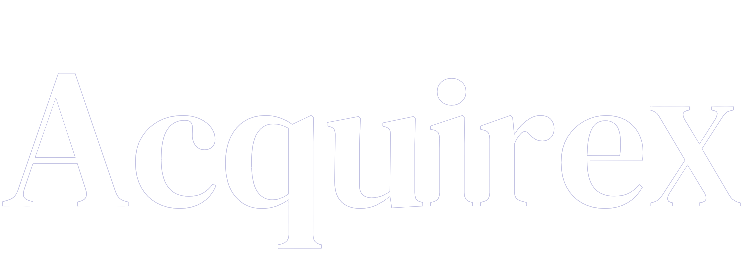Team extension may be a term unfamiliar to some, but it is a rapidly growing industry that holds considerable fascination. Business owners, in particular, should pay attention to this article as it can provide insights on how to increase revenue and reduce costs.
Understanding Team Extension
Team extension is a practice in which a business outsources a team with specific skills and expertise on a contract basis to supplement its existing workforce in a particular department.
For instance, an IT company lacking blockchain developers can engage an IT extension team (commonly known as IT staff augmentation) with the required expertise. Similarly, a sales extension team can be hired by companies seeking to boost revenue through specialized sales expertise.
Many companies are increasingly opting for extended teams due to the cost-saving benefits they offer. Hiring an entire in-house team can be financially burdensome, while engaging an extended team provides cost-effective solutions. Extended teams often bring experience and expertise to help meet deadlines and deliver quality work.
Advantages of Team Extension
Highly Scalable:
Extended teams contribute to scalable growth as their expertise enables them to deliver quality work efficiently, facilitating business expansion.
Global Accessibility:
Companies can hire extended teams with specialised skill sets and expertise from around the world, enabling access to a global talent pool.
Cost Saving:
Hiring extended teams on a contract basis helps companies reduce costs, making it particularly advantageous for businesses with fixed budgets.
High Loyalty:
Extended teams foster long-term relationships and demonstrate loyalty to the business, leading to continued project success.
Flexibility:
Extended teams can work nearshore or offshore, aligning with the company’s specific requirements.
Disadvantages of Team Extension
Prioritizing Cost Over Value:
Opting for a team solely based on cost can result in undervalued team members, which may impact work quality negatively.
Cultural Differences:
Diverse backgrounds within extended teams can lead to communication and collaboration challenges.
Poor Team Selection:
Inadequate hiring practices may result in a disengaged and unproductive team that delivers subpar work.
Unclear expectations :
Unclear expectations can create major conflicts between the extended team and the company. It is crucial to establish clarity regarding team members’ responsibilities and roles to avoid misunderstandings and ensure smooth cooperation.
Trust issues:
Trust issues may arise due to unclear expectations, poor communication, and insufficient collaboration skills among team members. These trust issues can ultimately lead to a decline in the quality of work produced.
How to Hire the Perfect Team Extension: Suitable for Your Business
To ensure the selection of a suitable extended team, it is advisable to thoroughly investigate the team’s previous collaborations. Seek reviews from previous companies to assess their reliability, ability to complete tasks on time, and level of focus and dedication.
After hiring an extended team, it is important to prevent them from switching between multiple projects. Instead, assign them to work on dedicated projects to maintain focus and efficiency. Additionally, it is recommended to maintain regular check-ins, discussions about projects, and stay updated on their activities. Clearly define each team member’s role, delegate specific tasks and responsibilities, and verify that they are working with the promised dedication and expertise.
Trends in Team Extension
Data security :
Data security is a critical concern when extending a team. As the data security market is projected to reach around $12.3 billion by the end of 2027, it is imperative to ensure data security by investing in premium tools and adopting new technologies.
Collaborative tools :
The need for collaborative tools will increase as the hiring of extended teams becomes more prevalent. Collaborative tools such as GoToMeeting, Flowdock, Slack, Webex, Asana, Dapulse, ProofHub, and Redbooth can greatly facilitate collaboration within extended teams.
Remote work :
Remote work is on the rise, with more than 18% of employees worldwide working remotely full time as of the beginning of 2023. Remote hiring offers cost-effective solutions and access to skilled professionals globally, making it a highly demanded practice for the future.
The use of AI and automation :
The use of AI and automation has proven to be effective for teams looking to enhance performance. AI tools facilitate the systematic analysis of structured and unstructured data. The AI market is projected to grow at a robust compound annual growth rate (CAGR) of 52.46% by the end of 2029.
Effective communication:
Effective communication plays a crucial role within a team. Poor communication can result in significant costs, as evidenced by a survey of 400 companies with approximately 100,000 employees, which revealed an average annual cost of $62.4 million due to poor communication among employees.
Predictions for Team Extension
More flexible work arrangements:
More flexible work arrangements will be necessary as the working culture has drastically changed after the pandemic. Instead of hiring traditional onboarding teams, companies are increasingly opting for freelancers, remote workers, and extended teams. Providing flexible work arrangements will help retain talent in the long run.
An increased demand for freelancers:
There will be an increased demand for freelancers, with freelancing projected to become the majority workforce in the US by 2027. In India, the freelancing market is estimated to reach USD 25 billion by 2025. These figures indicate a booming future for freelancing and a subsequent rise in demand for freelancers.
More competition in team extension Market :
The team extension market will witness more competition due to its numerous advantages, such as scalability, global accessibility, cost savings, loyalty, and flexibility. The high demand for extended teams will lead to increased competition in this market.
cultural fit importance :
Cultural fit will gain importance in the hiring process as it contributes to a more positive work environment, attracts top talent, fosters strong performance, and creates a positive brand image.
Increase emphasis on communication and project management :
Emphasis on communication and project management will increase in extended teams due to the challenges posed by collaboration and coordination among team members from different locations and time zones.
Conclusion
The demand for team extension will continue to grow, and companies should consider it when necessary. However, it is crucial to thoroughly evaluate the experience and expertise promised by the extended team. Establishing clear roles, communicating your company’s rules and policies, maintaining effective communication, setting clear expectations, and providing clarity about objectives are essential factors to keep in mind when working with an extended team.
Photo by Annie Spratt on Unsplash



